Jesus is crucified (from approximately 9 AM until Noon)
Matthew 27:27-54 Mark 15:16-39 Luke 23:26-49 John 19:16-37
47 While he was still speaking, Judas, one of the twelve, arrived. With him was a large crowd armed with swords and clubs, sent by the chief priests and elders of the people. 48 (Now the betrayer had given them a sign, saying, “The one I kiss is the man. Arrest him!”) 49 Immediately he went up to Jesus and said, “Greetings, Rabbi,” and kissed him. 50 Jesus said to him, “Friend, do what you are here to do.” Then they came and took hold of Jesus and arrested him. 51 But one of those with Jesus grabbed his sword, drew it out, and struck the high priest’s slave, cutting off his ear. 52 Then Jesus said to him, “Put your sword back in its place! For all who take hold of the sword will die by the sword. 53 Or do you think that I cannot call on my Father, and that he would send me more than twelve legions of angels right now? 54 How then would the scriptures that say it must happen this way be fulfilled?” 55 At that moment Jesus said to the crowd, “Have you come out with swords and clubs to arrest me like you would an outlaw? Day after day I sat teaching in the temple courts, yet you did not arrest me. 56 But this has happened so that the scriptures of the prophets would be fulfilled.” Then all the disciples left him and fled (Matthew 26:47-56).
Jesus was not “overtaken;” our Lord came from the garden (or orchard) to meet Judas and the multitude who accompanied him. Taking all the Gospels into account, we see that a very large group – a multitude – had come out to arrest Him. This group included Judas, the high priest and his servants, the chief priests, the scribes, the elders of the Jews, the temple police, and a cohort of Roman soldiers. These folks came prepared for the worst. Not only were they armed with swords and clubs (verse 47), they also had lanterns and torches. They seemed to expect Jesus to resist arrest, and they were ready for it, or so they thought.
4 Then Jesus, because he knew everything that was going to happen to him, came and asked them, “Who are you looking for?” 5 They replied, “Jesus the Nazarene.” He told them, “I am he.” (Now Judas, the one who betrayed him, was standing there with them.) 6 So when Jesus said to them, “I am he,” they retreated and fell to the ground. 7 Then Jesus asked them again, “Who are you looking for?” And they said, “Jesus the Nazarene.” 8 Jesus replied, “I told you that I am he. If you are looking for me, let these men go.” 9 He said this to fulfill the word he had spoken, “I have not lost a single one of those whom you gave me” (John 18:4-9, emphasis mine).
John’s account makes it clear that Jesus is still in control. He went out to meet those who sought Him. He asked who they were looking for. When they told Him they were seeking Jesus, He responded, “I am.” Now it is likely that they understood this to mean, “I am He; I am the one you seek.” But it is difficult for the reader not to understand this response in the light of John 8:58 and Exodus 3:14:
Jesus said to them, “I tell you the solemn truth, before Abraham came into existence, I am!” (John 8:58)
Those who came so prepared to overpower Jesus find themselves backing away from His presence, and falling all over themselves. They are so disarmed by this confrontation of Jesus that they let Jesus’ disciples walk (run?) away, untouched. In this way, Jesus fulfills His promise to keep them (John 18:9).
Matthew provides a somewhat more abridged account. A large crowd arrives at the garden (or orchard), and Judas steps forward to kiss Jesus. This is the sign he had prearranged with the soldiers so that they would know who it was they were to arrest. How ironic that Judas would choose a kiss, a token of love and affection, to identify Jesus. Remarkably, Jesus finds it possible to refer to Judas as “friend” (verse 50). No words of malice or even rebuke are spoken to Judas here, something that may have later haunted Judas. As the soldiers stepped forward to arrest Jesus, “one of the disciples” (we all know it is Peter, thanks to John 18:10) pulled out his sword and cut off the ear of Malchus (again, we have his name thanks to John), the slave of the high priest. It is clear from Luke’s account that some of the other disciples were thinking the same thing:
When those who were around him saw what was about to happen, they said, “Lord, should we use our swords?” (Luke 22:49)
 Peter was already taking action, which comes as no surprise to the reader. Jesus rebuked His over-zealous, sword-swinging, disciple. Peter’s response was wrong for several reasons. First, he was wrong because violence begets violence. “All who take hold of the sword will die by the sword” (verse 52). The kingdom of God will not be achieved by the use of force or violence. The disciples were to “take up their cross” and not their swords. Secondly, Peter’s hasty use of the sword betrayed a lack of faith in the Messiah’s ability to defend Himself, and in God’s ability to come to His defense, should He wish to do so. At any point in time, Jesus could have called upon the host of heaven at His disposal and annihilated His enemies. This was indeed the challenge put to Jesus while on the cross:
Peter was already taking action, which comes as no surprise to the reader. Jesus rebuked His over-zealous, sword-swinging, disciple. Peter’s response was wrong for several reasons. First, he was wrong because violence begets violence. “All who take hold of the sword will die by the sword” (verse 52). The kingdom of God will not be achieved by the use of force or violence. The disciples were to “take up their cross” and not their swords. Secondly, Peter’s hasty use of the sword betrayed a lack of faith in the Messiah’s ability to defend Himself, and in God’s ability to come to His defense, should He wish to do so. At any point in time, Jesus could have called upon the host of heaven at His disposal and annihilated His enemies. This was indeed the challenge put to Jesus while on the cross:
41 In the same way even the chief priests—together with the experts in the law and elders—were mocking him: 42 “He saved others, but he cannot save himself! He is the king of Israel! If he comes down now from the cross, we will believe in him! 43 He trusts in God—let God, if he wants to, deliver him now because he said, ‘I am God’s Son’!” (Matthew 27:41-43)
The wonder of wonders is that Jesus chose to remain on that cross, to die for those who hated Him.
Thirdly, Jesus must be arrested, tried, and executed in this manner because the Scriptures must be fulfilled (verse 54). Jesus had indicated earlier that He must be arrested, persecuted, and crucified. He was to be opposed by unbelieving Jews, and also by Gentiles. Peter and the disciples saw what was coming and reached for their swords. Jesus knew everything that was about to happen to Him (John 18:4), but since this is what God had purposed to take place, Jesus would not allow any of the disciples to defend Him by force. It must happen this way.
After rebuking His disciples for attempting to defend Him by force, Jesus then turned to those who had come to arrest Him. Why were they seeking to take Him by force? What was the need for this great “posse” (to use a term from the old Western movies – a large party of folks authorized to assist in the arrest of Jesus)? Why did they have to arrest Him at night? Jesus had not been in hiding, as if He were a wanted felon. He had publicly taught in the temple. He was never more accessible for arrest than during the previous week. If the disciples’ (threatened) use of force revealed some wrong thinking, so did the show of force by those who came to arrest Jesus in the garden.
Let us leave these verses by taking note that Peter surely was willing to die for His Lord, just as he had claimed earlier. No one would start swinging his sword against an armed force this large without expecting to die (or at least expecting our Lord to intervene with some “heavenly firepower”). Our Lord was indicating to Peter and the rest that if He needed heaven’s intervention, He could do so without His disciples precipitating violence.
You can read the entire article at Bible.org

The Day Christ Died
By Bob Deffinbaugh at Bible.org
For many in Jerusalem, it looked just like any other day. Simon of Cyrene was on his way into the city from the country (Mark 15:21). Little did he know that Jesus had been arrested, tried during the night and early morning hours, and had just been delivered over for crucifixion, taking, it would seem, the place of Barabbas. A centurion and several other soldiers had drawn the duty of executing three men. They had probably performed this duty numerous times, and so today’s task did not appear to be anything new or unusual.
It was not an ordinary day for the two thieves. These men were scheduled for execution on this day. We are not told what these men knew about Jesus, but it may have been very little, since we can assume that Jesus would have been a last-minute addition to their number as they took up their crosses and made their way to Golgotha. After nailing Jesus and the others to their crosses, the soldiers settled down to a ritual they knew all too well. Little did anyone know what this day held in store for them. It was, however, a day no one would ever be able to forget. It was the day Christ died.
Act 1: Jesus Endures the Wrath of Men
Matthew 27:32-44
32 As they were going out, they found a man from Cyrene named Simon, whom they forced to carry his cross. 33 They came to a place called Golgotha (which means “Place of the Skull”) 34 and offered Jesus wine mixed with gall to drink. But after tasting it, he would not drink it. 35 When they had crucified him, they divided his clothes by throwing dice. 36 Then they sat down and kept guard over him there. 37 Above his head they put the charge against him, which read: “This is Jesus, the king of the Jews.” 38 Then two outlaws were crucified with him, one on his right and one on his left. 39 Those who passed by defamed him, shaking their heads 40 and saying, “You who can destroy the temple and rebuild it in three days, save yourself! If you are God’s Son, come down from the cross!” 41 In the same way even the chief priests—together with the experts in the law and elders—were mocking him: 42 “He saved others, but he cannot save himself! He is the king of Israel! If he comes down now from the cross, we will believe in him! 43 He trusts in God—let God, if he wants to, deliver him now because he said, ‘I am God’s Son’!” 44 The robbers who were crucified with him also spoke abusively to him.
Pilate knew that Jesus was innocent, but he could not seem to find a way to release Him. Eventually, he gave in to the demands of the crowd and released Barabbas, handing Jesus over for crucifixion. The condemned normally carried their own cross, but it would seem that Jesus had endured such abuse that He no longer had the strength to carry His. A man named Simon, from Cyrene, a north African city of Libya, happened by. A large crowd was following Jesus, made up mainly of women (Luke 23:27). Simon does not appear to have been following Jesus, but rather was coming into Jerusalem from the country (Luke 23:26). Perhaps he was passing by Jesus just as our Lord stumbled under the load of His cross. Simon was forced to take up our Lord’s cross, an unforeseen event that I believe changed the course of Simon’s life.
Why is this man mentioned by name in all three of the Synoptic Gospels (Matthew, Mark, and Luke)? And why are we told the city from which he came? Mark goes even further, telling us that Simon was the father of Alexander and Rufus (Mark 15:21). I believe Mark expects his readers to recognize this man, and his sons. It is my opinion that until this fateful day, Simon was an unbeliever, but what he saw on this day, the day Christ died, changed him forever, bringing him into God’s kingdom.
The procession arrives at last at Golgotha, where all three men are to be crucified. They offer our Lord “wine mixed with gall,” but when He realizes what it is, He refuses to drink it. More than likely this was provided for the condemned as a kind of sedative or pain reliever. Jesus refused anything which would diminish His suffering, for He must drink the cup of God’s wrath on guilty sinners to the brim.
Notice how quickly Matthew (and the other Gospel writers) pass by the description of the actual crucifixion procedures. We are not told all the gory details about how the nails were driven through our Lord’s hands, though we know that they were (see John 20:25, 27). Neither Matthew nor any of the other Gospel writers dwells on the physical sufferings of our Lord, though there was much that could have been written about this. Matthew turns our attention to the soldiers, who throw the dice to determine who will get our Lord’s garments. John provides greater detail here (John 19:23-24); he alone specifically calls attention to this as the fulfillment of prophecy:
23 Now when the soldiers crucified Jesus, they took his clothes and made four shares, one for each soldier, and the tunic remained. (Now the tunic was seamless, woven from top to bottom as a single piece.) 24 So the soldiers said to one another, “Let’s not tear it, but throw dice to see who will get it.”This took place to fulfill the scripture that says, “They divided my garments among them, and for my clothing they threw dice.” So the soldiers did these things (John 19:23-24, emphasis mine).
This is a citation from Psalm 22 (verse18), a psalm whose prophecies are fulfilled several times in the crucifixion of our Lord.
The thing I wish to point out is that these soldiers have little or no interest in who Jesus is, or in what He has done. This is just another day on the job for them. After casting lots, they settle down for what they have come to expect – a number of hours of human agony, to which they seem to turn a deaf ear. Later events will cause them to get much more interested in what is happening on this day, the day Christ died.
Then there is the sign, posted on the top of our Lord’s cross: “This is Jesus, the king of the Jews” (Matthew 27:37). John’s Gospel makes much of this, because the Jews didn’t like the wording of the sign. They much preferred that the sign clearly indicate this was merely what Jesus claimed. Pilate seemed to take pleasure in their displeasure, using the sign to irritate them. It was really what this was all about, anyway. Jesus was here because He claimed to be the King of the Jews, and the Jews refused to accept Him as such.
The emphasis of the paragraph in Matthew 27:32-44 is upon the mocking of those who looked on as Jesus was being crucified. Consider several characteristics of this mocking.
First, this mocking was virtually unanimous. Everyone there took part in mocking Jesus. In our text, Matthew specifically names “those who passed by” (Matthew 27:39), the chief priests, experts in the law, and the elders (27:41-43), and the two robbers who were crucified along with Jesus (Matthew 27:44). Luke also includes the soldiers who stood by (Luke 23:36-37). One gets the impression that Jesus was the center of attention and that all who were there joined in mocking Him. He bore the wrath of men, and of God, alone.
Second, this mocking was intense and angry. There is a deep hostility and anger evident in the words spoken. If Jesus were a murderer, like Barabbas, one could understand how angry words could be spoken to Him and of Him. I am reminded of the title of one of the last chapters in R. C. Sproul’s book, The Holiness of God: “God in the Hands of Angry Sinners.” That is what we see here. The wrath of men is being poured out upon the sinless Savior.
Third, this mocking is against the essence of what our Lord Jesus claimed and taught concerning Himself.While the disciples seemed obtuse to much of what our Lord was teaching, the crowd has it nearly right. They don’t mock Jesus for advocating revolution, or for teaching that they should not pay their taxes. They mock Jesus for claiming to be “the King of the Jews” (Matthew 27:37), the “King of Israel” (Matthew 27:42), “the Son of God” (Matthew 27:40, 43), for “saving others” (Matthew 27:42), and for “trusting in God” (Matthew 27:43). The only thing they had somewhat twisted was our Lord’s alleged claim to be able to destroy the temple and rebuild it in three days (Matthew 27:40).
Fourth, this mocking is a really a dare, and thus a recurrence of the same kinds of temptation our Lord experienced in the wilderness. Satan’s challenge, “If you are the Son of God…” (Matthew 4:3, 6), is echoed by those who now say, “If you are God’s Son, come down from the cross!” (Matthew 27:40b). In both cases, the temptation is for Jesus to act in a way that men would expect, in a way that men would do, if they were the Son of God. In other words, the temptation is for our Lord to use His divine power to avoid pain and suffering and to satisfy Himself. They cannot conceive of Jesus having the power to save Himself, and not using it to do so. They cannot conceive of God suffering at the hands of sinful men.
Fifth, the mocking of those who witnessed the death of Christ was a challenge for our Lord to act in a way that would nullify His saving work. If men had their way, our Lord would have saved Himself, and at the same time, He would have ventured from the predetermined plan of God whereby sinful men could be saved. Men are not acting in the best interest of our Lord, and they are not acting in their own best interest, either.
In this first act, men seem to have the upper hand, and Jesus appears to be the helpless victim. Men pour out their wrath on Jesus for not acting as they would expect, as they demand. The guards cast lots for the garments of our Lord, and then settle down for what experience has taught them will be a long vigil. Things quickly and radically change by the time we come to act two, as we are about to see.
Act 2: Our Lord Endures the Wrath of God
Matthew 27:45-56
45 Now from noon until three, darkness came over all the land. 46 At about three o’clock Jesus shouted with a loud voice, “Eli, Eli, lema sabachthani?” that is, “My God, my God, why have you forsaken me?” 47 When some of the bystanders heard it, they said, “This man is calling for Elijah.” 48 Immediately one of them ran and got a sponge, filled it with sour wine, put it on a stick, and gave it to him to drink. 49 But the rest said, “Leave him alone! Let’s see if Elijah will come to save him.” 50 Then Jesus cried out again with a loud voice and gave up his spirit. 51 Just then the temple curtain was torn in two, from top to bottom. The earth shook and the rocks were split apart. 52 And tombs were opened, and the bodies of many saints who had died were raised. 53 (They came out of the tombs after his resurrection and went into the holy city and appeared to many people.) 54 Now when the centurion and those with him who were guarding Jesus saw the earthquake and what took place, they were extremely terrified and said, “Truly this one was God’s Son!” 55 Many women who had followed Jesus from Galilee and given him support were also there, watching from a distance. 56 Among them were Mary Magdalene, Mary the mother of James and Joseph, and the mother of the sons of Zebedee (Matthew 27:45-56).
What a difference three hours can make. It was high noon, and yet darkness suddenly fell over all the land, a darkness that lasted for three hours. Matthew, Mark, and Luke all call attention to this darkness, yet none of them attempts to explain how it happened. There really is no simple explanation. We do not get the impression that this is a dust storm, a cloudy day, or an eclipse. This is sudden and sustained darkness. The best example of this kind of darkness is found in the Book of Exodus, when God brought darkness over the land of Egypt:
21 The Lord said to Moses, “Extend your hand toward heaven so that there may be darkness over the land of Egypt, even darkness that can be felt.” 22 So Moses extended his hand toward heaven, and there was a thick darkness in all the land of Egypt for three days. 23 No one could see another person, and no one could rise from his place for three days. But the Israelites had light in the places where they lived (Exodus 10:21-23).
I believe that this darkness that fell over the land of Israel during the crucifixion of our Lord was the same intense darkness we read about in Exodus. I suspect that a hush fell over the crowd, and that all that could be heard were gasps of fear, even terror. You will remember that when Paul was stopped short on the road to Damascus he was stricken with blindness for three days. It gave him time to ponder what he had just experienced.
I believe the main reason for this three-hour darkness over the land of Israel was to place a veil of darkness over the suffering of our Lord, suffering at the hand of His Father. Jesus is now suffering the eternal wrath of God on sinners. While Mel Gibson’s movie, The Passion of the Christ, may dramatically depict the driving of nails through the hands of our Lord (something the Scriptures don’t describe), there is no way any human could depict the separation our Lord experienced from the Father. This agony our Lord bore alone, veiled from the eyes of those who mocked Him.
I should add that while we rightly make much of the suffering of our Lord, let us not forget what this meant to the Father. Those of us who have children know how painful it is for us to observe the suffering of our children. Add to this the fact that the suffering of the Son was the plan and purpose of the Father. Can you imagine what it would have been like for the Father to put His Son on the cross, and then to hear sinners daring Him to save His Son? What a price the Father and the Son paid to save unworthy sinners like us.
At the end of this three-hour period of darkness, Jesus uttered this cry in a loud voice: “Eli, Eli, lema sabachthani?” (Matthew 27:46). Matthew interprets it for us: “My God, my God, why have you forsaken me?” (Matthew 27:46). We know that Jesus is calling out the first words of Psalm 22, a Messianic Psalm that depicts the suffering of Messiah at Calvary. Several prophecies found in this psalm are fulfilled in the death of Jesus at Calvary. Jesus is identifying Himself as the Suffering Servant, the Messiah whose death will bring about salvation for lost sinners.
It is almost amazing to read that a number of the bystanders didn’t realize what Jesus was saying. They did not see this as our Lord’s citation of Psalm 22:1; they saw it as Jesus calling to Elijah for help. I’m not surprised that some of the bystanders would fail to grasp the meaning of our Lord’s words here. What I wonder is what the Jewish religious leaders thought Jesus was saying. Would they not recognize this as the first words ofPsalm 22? And if they did, what did they make of that? We are not told. We are told that one of them obtained a sponge and dipped it in sour wine to give Jesus a drink. Some of the others urged Him to hold back and see if Elijah would come to His rescue. It may well be that this was said in jest or sarcasm. But it may also be that some were not entirely convinced that Jesus would be left to suffer on His cross. Some might have been curious to see if God did come to rescue Jesus.
Notice that this time Jesus does drink some of the wine. If this wine did contain any tranquilizer or pain reliever, it would not have had time to produce its effect, for Jesus will die almost immediately after He drinks some of the wine. My own sense is that Jesus took some of the wine to relieve His parched throat, so that His final, triumphant shouts would be loud and clearly heard. When taking all the Gospels into account, I am inclined to think that Jesus first shouted, “It is finished!” (John 19:30), followed by, “Father, into your hands I commit my spirit!” (Luke 23:46). It is the latter statement that would seem to have preceded our Lord’s giving up of His spirit, so that it was apparent to all that He gave up His life. His life was not taken from Him; He voluntarily gave it up:
17 This is why the Father loves me—because I lay down my life, so that I may take it back again. 18 No one takes it away from me, but I lay it down of my own free will. I have the authority to lay it down, and I have the authority to take it back again. This commandment I received from my Father” (John 10:17-18).
Our Lord’s death occurred at the moment He cried His last utterance, but His death was but the first of a sequence of miraculous events. Matthew is the one Gospel that emphasizes the supernatural phenomenon that accompanied our Lord’s death:
50 Then Jesus cried out again with a loud voice and gave up his spirit. 51 Just then the temple curtain was torn in two, from top to bottom. The earth shook and the rocks were split apart. 52 And tombs were opened, and the bodies of many saints who had died were raised. 53 (They came out of the tombs after his resurrection and went into the holy city and appeared to many people.) (Matthew 27:50-53)
All three Synoptic Gospels record the rending of the temple veil at the moment of our Lord’s death; only John’s account omits this. The implications of this symbolic event are immense, but they are not spelled out here. These matters will be taken up later in the New Testament. In short, the rending of the veil signified the end of the Old Covenant, under which people had to keep their distance from God, and the commencement of the New Covenant, under which men and women may draw near, through the shed blood of Jesus (note Hebrews 9; 10:19-24).
Now we come to something that is unique to Matthew: the great earthquake, in which rocks were split, tombs were opened, and dead saints were raised to life. What a punctuation mark God placed at the death of His Son! Jesus cries out triumphantly, proclaiming that His work is finished, and committing His spirit to the Father. Jesus then breathes His last and gives up His spirit. At the very moment of His death, the temple veil was rent, and a great earthquake shook the place so hard that the rocks split and graves were broken open. All this took place in close proximity to the three hours of darkness.
We know that the dead were not raised until after the resurrection (Matthew 27:53), so why are we told here that the tombs were opened? Why not wait until the resurrection itself? For one thing, I believe Matthew wants us to see the hand of God plainly in the events surrounding the death of our Lord. For another, I believe that the graves were opened in preparation for the resurrection of these Jerusalem saints coinciding with our Lord’s resurrection. The earthquake sets the stage for the resurrection of the dead Jerusalem saints. Third, I believe that we are meant to see the connection between the death of our Lord and His resurrection. The death of our Lord was a supernatural event, and the spectacular phenomena that accompany it underscore this fact. To Matthew (and the other apostles – see Acts 2:22-36), the resurrection of our Lord is a necessary corollary to the cross, and he wants us to recognize this.
Now, the bodies of “many saints who had died” and had been buried were raised to life, and they went into “the holy city” (Jerusalem) where they appeared to many people (Matthew 27:53). This is amazing! Can you imagine the impact this would have had on the people of Jerusalem? What a way to underscore the resurrection of our Lord. Not only did Jesus rise from the dead, but a large group of saints were raised at the same time. It might be worth considering just who some of these resurrected folks could have been:
33 Nevertheless I must go on my way today and tomorrow and the next day, because it is impossible that a prophet should be killed outside Jerusalem.’ 34 O Jerusalem, Jerusalem, you who kill the prophets and stone those who are sent to you! How often I have longed to gather your children together as a hen gathers her chicks under her wings, but you would have none of it! (Luke 13:33-34; see also Matthew 23:37)
Jerusalem was where the prophets were killed and were buried:
29 “Woe to you, experts in the law and you Pharisees, hypocrites! You build tombs for the prophets and decorate the graves of the righteous. 30 And you say, ‘If we had lived in the days of our ancestors, we would not have participated with them in shedding the blood of the prophets’” (Matthew 23:39-30).
I think it is therefore reasonable to assume that some of those who were raised and who went about Jerusalem were martyred prophets. What a story they would have had to tell! And what an impact they must have had on the people of Jerusalem.
But let’s get back to the cross and the moment of our Lord’s death. There were those who were greatly impacted by the way our Lord died:
Now when the centurion and those with him who were guarding Jesus saw the earthquake and what took place, they were extremely terrified and said, “Truly this one was God’s Son!” (Matthew 27:54)
Mark and Luke have similar statements:
Now when the centurion, who stood in front of him, saw how he died, he said, “Truly this man was God’s Son!” (Mark 15:39)
47 Now when the centurion saw what had happened, he praised God and said, “Certainly this man was innocent!” 48 And all the crowds that had assembled for this spectacle, when they saw what had taken place, returned home beating their breasts (Luke 23:47-48).
Luke has the centurion declaring our Lord’s innocence, adding to the testimony (in Matthew) of Judas (Matthew 27:4), Pilate (Matthew 27:23-24; see also Acts 3:13; 13:28), and Pilate’s wife (Matthew 27:19). Luke adds some other details. First, he has the centurion praising God, not just confessing Jesus’ innocence. Second, he informs us that the crowds went home “beating their breasts” (Matthew 23:48). The crowds may not have been willing to declare the innocence of our Lord, but they most certainly did not go home with a satisfied smile on their faces. They knew that something terrible had happened that day, something they did not understand, but which terrified them greatly. There was no pleasure for them in this crucifixion.
Unlike the other Gospel accounts, Matthew goes beyond the confession of the centurion himself. Matthew tells us that the centurion, along with the other soldiers who were guarding Jesus, confessed that Jesus was the Son of God. These soldiers, who had just a few hours earlier settled down for a long vigil, aloof to the suffering of Jesus (and even joining in on the mockery of Jesus – see Luke 23:36-37), were now wide-eyed with terror. They could do nothing other than confess that Jesus’ claim to be the Son of God was true. What a powerful testimony this was.
Matthew, like Mark (15:40-41) and Luke (23:49), tells about the women who had supported Jesus throughout His earthly ministry, looking on from some distance away. It was all they could do. They were the only ones, it would seem, who did not take part in mocking Jesus. They remained faithful to Jesus, not forsaking him (as it would seem ten of His disciples did). One wonders what they were thinking as they observed the supernatural phenomena that accompanied the death of the Savior.

57 Now when it was evening, there came a rich man from Arimathea, named Joseph, who was also a disciple of Jesus. 58 He went to Pilate and asked for the body of Jesus. Then Pilate ordered that it be given to him. 59 Joseph took the body, wrapped it in a clean linen cloth, 60 and placed it in his own new tomb that he had cut in the rock. Then he rolled a great stone across the entrance of the tomb and went away. 61 (Now Mary Magdalene and the other Mary were sitting there, opposite the tomb.) (Matthew 27:57-61)
Joseph of Arimathea is a most interesting fellow. We have not met him before, and we shall not meet him again, except in the parallel accounts of the other Gospels. Every Gospel mentions the burial of our Lord by Joseph of Arimathea. John’s Gospel informs us that Nicodemus assisted Joseph of Arimathea in burying Jesus (Matthew 19:39-42). Matthew tells us that Joseph was a disciple of Jesus (Matthew 27:57), but John adds that he was a secret disciple because he feared the Jews (Matthew 19:38). Mark informs us that he was a highly regarded member of the Sanhedrin, who was looking forward to the kingdom of God (Matthew 15:43). Luke adds that “he was a good and righteous man” (Matthew 23:50), who did not consent to the Sanhedrin’s decision to kill Jesus (Matthew 23:51).
Mark tells us that Joseph went “boldly” to Pilate and asked for the body of Jesus (Matthew 15:43). One would have to say that it must have taken great courage to identify with Jesus as this moment in time. Peter and our Lord’s disciples were not yet willing to do so, at least after His arrest. Even more so, I am impressed with Joseph’s boldness in distinguishing himself from his colleagues on the Sanhedrin. You can well imagine that Joseph was no longer welcome on the council after he publicly identified with Jesus. His actions spoke louder than words, for it became evident that he was a follower of Jesus, and therefore distanced himself from the other members of the Sanhedrin and the action they had taken.
Being a rich man (Matthew 27:57), Joseph had a tomb already prepared for his own burial, a new tomb that had been cut out of the rock (Matthew 27:60). Time was short, and the Jews were eager to get the bodies down from the crosses so that they could observe Passover. I am inclined to think that many of the executed criminals may not even have been buried. Joseph knew that his tomb was nearby and available, so he made good use of it. The body of Jesus was hastily prepared (probably with the assumption that further preparations could be made after Sabbath) and placed in the tomb. A large stone was then rolled across the entrance as Mary Magdalene and “the other Mary” looked on (Matthew 27:61).
Conclusion
Let us first give thought to the importance of our text and to the death of our Lord Jesus Christ. I believe that Matthew has written this Gospel in a way that makes the cross the main climax of the book. Here is what our Lord has been about from the beginning. The death of Christ on the cross of Calvary is the one and only way by which men can obtain the forgiveness of sins and the gift of eternal life.
14 Just as Moses lifted up the serpent in the wilderness, so must the Son of Man be lifted up, 15 so that everyone who believes in him may have eternal life.” 16 For this is the way God loved the world: He gave his one and only Son, so that everyone who believes in him will not perish but have eternal life. 17 For God did not send his Son into the world to condemn the world, but that the world should be saved through him (John 3:14-17).
This week I will preach the funeral service for a neighbor who just passed away. I’m going to use this passage in Matthew for my funeral text, even though I’ve never used it for a funeral message before. The death of our Lord Jesus Christ puts death (especially the death of a Christian) in a whole new light. The death of our Lord, ugly and wicked though it was (so far as man’s participation in it is concerned), was such that it drew people to faith. Christ’s death can be the death of death for us, if we trust in the saving work of our Lord on the cross. He was innocent, as Judas, Pilate, Pilate’s wife, one of the two thieves who hung beside Jesus, and the Roman soldiers testified. This is what makes His death unique and effective for us. He did not die for His sins (because He was innocent), but for the sins of lost men and women like you and me.
We should see ourselves in those who rejected our Lord and mocked Him as He was dying on the cross. We should see only innocence and perfect righteousness in Jesus. Let us acknowledge our sin, and the fact that the death He died was for the sins of others, and not His own. Let us trust in His death in our place, bearing the penalty for our sins, for the forgiveness of our sins, and the gift of eternal life.
The death of our Lord Jesus is the payment for our sins, and the only way that we will ever obtain eternal life. But it is also a pattern for us to follow:
18 Slaves, be subject to your masters with all reverence, not only to those who are good and gentle, but also to those who are perverse. 19 For this finds God’s favor, if because of conscience toward God someone endures hardships in suffering unjustly. 20 For what credit is it if you sin and are mistreated and endure it? But if you do good and suffer and so endure, this finds favor with God. 21 For to this you were called, since Christ also suffered for you, leaving an example for you to follow in his steps. 22 He committed no sin nor was deceit found in his mouth. 23 When he was maligned, he did not answer back; when he suffered, he threatened no retaliation, but committed himself to God who judges justly. 24 He himself bore our sins in his body on the tree, that we may cease from sinning and live for righteousness. By his wounds you were healed. 25 For you were going astray like sheep but now you have turned back to the shepherd and guardian of your souls (1 Peter 2:18-25).
Just as our Lord Jesus “took up His cross,” so we too must take up our cross, daily:
23 Then he said to them all, “If anyone wants to become my follower, he must deny himself, take up his cross daily, and follow me. 24 For whoever wants to save his life will lose it, but whoever loses his life for my sake will save it” (Luke 9:23-24).
The cross alone is the basis for our boasting, for salvation is not a work that we do, but a work that He has done, which we receive as a gift:
But may I never boast except in the cross of our Lord Jesus Christ, through which the world has been crucified to me, and I to the world (Galatians 6:14).
As we focus on Matthew’s account of the death of our Lord, we should ask ourselves why he has placed such great emphasis on the cross, on the death of our Lord. In particular, why does Matthew make a point of including the report of so many miracles in connection with the death of the Lord Jesus? Aside from the fact that it is only through the death (and subsequent resurrection) of the Lord Jesus that lost sinners can be saved, there are a couple of other reasons for Matthew’s emphasis on miracles in conjunction with the death of the Savior.
First, I would suggest that these miracles in Matthew testify to the uniqueness of the death of the Lord Jesus. No one ever died like this before or will ever die like this in the future. The death of the sinless Son of God in the sinner’s place is a most unique thing. This was no ordinary crucifixion, no ordinary death. Even those who refused to believe in Jesus left Golgotha beating their breasts, as Luke has informed us.
Second, I would suggest that these miracles in Matthew testify to the presence of God in the process by which He had chosen to save men – through our Lord’s rejection, suffering, and sacrificial death. It is on the cross that our Lord suffered the eternal torment of separation from the Father. This is why our Lord cried out using the words of Psalm 22, verse 1. There is a sense, then, that God was not there, that is, God the Father had withdrawn from the Son. This had to be since the penalty for our sin is death – separation from God. Jesus had to experience that in our place. But these miraculous events remind us that while the Father was separated from the Son while He was on the cross, He was present in the event. The death of Christ was the sovereignly ordained purpose of the Father:
22 “Men of Israel, listen to these words: Jesus the Nazarene, a man clearly attested to you by God with powerful deeds, wonders, and miraculous signs that God performed among you through him, just as you yourselves know— 23 this man, who was handed over by the predetermined plan and foreknowledge of God, you executed by nailing him to a cross at the hands of Gentiles (Acts 2:22-23).
36 Then Jesus went with them to a place called Gethsemane, and he said to the disciples, “Sit here while I go over there and pray.” 37 He took with him Peter and the two sons of Zebedee, and became anguished and distressed. 38 Then he said to them, “My soul is deeply grieved, even to the point of death. Remain here and stay awake with me.” 39 Going a little farther, he threw himself down with his face to the ground and prayed, “My Father, if possible, let this cup pass from me! Yet not what I will, but what you will” (Matthew 26:36-39).
5 You should have the same attitude toward one another that Christ Jesus had, 6 who though he existed in the form of God did not regard equality with God as something to be grasped, 7 but emptied himself by taking on the form of a slave, by looking like other men, and by sharing in human nature. 8 He humbled himself, by becoming obedient to the point of death —even death on a cross! 9 As a result God exalted him and gave him the name that is above every name, 10 so that at the name of Jesus every knee will bow —in heaven and on earth and under the earth— 11 and every tongue confess that Jesus Christ is Lord to the glory of God the Father (Philippians 2:5-11).
Our Lord Jesus submitted Himself to the will of the Father that He should die on the cross of Calvary, and then be raised again. On the cross, the Son suffered separation from the Father, but the miracles associated with our Lord’s death tell us that the Father was in this, for it was His will and purpose to save men in this way.
Third, these miracles testify to the fact that Jesus was who He claimed to be. I believe that all of these – Simon of Cyrene, one of the two thieves, Joseph of Arimathea, Nicodemus, and the centurion with his soldiers – came to recognize that the events surrounding the death of Christ proved Him to be the Son of God, the King of Israel. The unbelief of the crowds revealed that the hearts of many were hardened to the point that this compelling evidence was somehow set aside. But there were those who could do nothing else than to believe, because of what they saw. We don’t know about Simon of Cyrene, but we would probably be correct to assume that the thief on the cross and the Roman soldiers had little background or knowledge of Israel’s Messiah. In spite of this, they found the evidence so compelling that they believed the same claims for which Jesus had earlier been mocked.
Think of it. These folks believed in Jesus while He was dying, and before His resurrection. Some (like the thief on the cross) believed even before the miraculous events occurred. How could Jesus, a man dying as a criminal, be so convincing? Because He died like no one else had ever died, and because God testified to the uniqueness of Jesus and His death by the miracles associated with His crucifixion and death.
While miracles are certainly prominent here, there is something missing, something we are accustomed to seeing. Up till now, Matthew has made it a point to show how the events of our Lord’s life fulfill prophecy. We saw this at the time of our Lord’s birth and early childhood (see Matthew 1:22; 2:15, 17, 23). We saw it again during Matthew’s account of our Lord’s public ministry (Matthew 4:14; 8:17; 12:17-18; 13:14, 35). And now, we know that many of the events Matthew describes pertaining to our Lord’s death are the fulfillment of Old Testament prophecies, and yet Matthew does not make a point of indicating this. Why not? I am inclined to think that it is for two reasons.
First, the people who witness these events did not recognize them as the fulfillment of prophecy at the time they occurred. And second, Matthew wants us to see that people believed because of the sheer weight of the evidence, apart from the prophecies they fulfilled. In other words, they were not predisposed to believe; they just saw no other option than to believe.
The death of our Lord Jesus is the most unique death in all of human history. It will radically change the way we view death if we are Christians. It is a death that is so unique that men have come to faith in Jesus even before the resurrection.
Every Sunday we celebrate communion, and in so doing, we commemorate the death of our Lord:
For every time you eat this bread and drink the cup, you proclaim the Lord’s death until he comes (1 Corinthians 11:26).
I believe that we are to observe communion weekly for several reasons. First, it appears to be the practice of the early church (Acts 20:7; 1 Corinthians 11). Second, it is because the death of Christ is so central to the gospel message (see 1 Corinthians 1:18-25). Third, it is because the cross is so central to the way we are to live out our daily lives (see Romans 6). Fourth, it is because the cross of Christ is so strongly detested and opposed by the world:
18 For the message about the cross is foolishness to those who are perishing, but to us who are being saved it is the power of God. 19 For it is written, “I will destroy the wisdom of the wise, and I will thwart the cleverness of the intelligent.” 20 Where is the wise man? Where is the expert in the Mosaic law? Where is the debater of this age? Has God not made the wisdom of the world foolish? 21 For since in the wisdom of God the world by its wisdom did not know God, God was pleased to save those who believe by the foolishness of preaching. 22 For Jews demand miraculous signs and Greeks ask for wisdom, 23 but we preach about a crucified Christ, a stumbling block to Jews and foolishness to Gentiles. 24 But to those who are called, both Jews and Greeks, Christ is the power of God and the wisdom of God. 25 For the foolishness of God is wiser than human wisdom, and the weakness of God is stronger than human strength (1 Corinthians 1:18-25).
The message the world hates is the truth that we celebrate. The message the world hates is the only message that will save lost sinners, the only message that we should proclaim. Jesus Christ died on the cross of Calvary, bearing the penalty for my sins, and setting a pattern for the kind of life I should live as a Christian. The cross of Christ is such a glorious mystery that it will take all eternity to begin to fathom what God has done in this magnificent event, to His glory.
You can read the entire article at Bible.org.












 Peter was already taking action,
Peter was already taking action, 



 We have all kinds of evidence written by other Christians in the earliest decades of the second century, after the New Testament was complete. But, usually, somebody asking that kind of question is asking, ‘What kind of nonChristian evidence do we have, concerned that perhaps Christians were biased, and therefore, wanting to make sure that we can prove that Jesus existed, was something like what Jesus claimed He was from other ancient Jewish, Greek, Roman sources. There are about a dozen such references to Jesus. By far, the fullest one comes from a late first century Jewish historian named Josephus. But, we find early second century writers in the Roman world like Tacitus and Plutonius. We find references in the Encyclopedic size collection of Jewish traditions known as the Talmud, and elsewhere.
We have all kinds of evidence written by other Christians in the earliest decades of the second century, after the New Testament was complete. But, usually, somebody asking that kind of question is asking, ‘What kind of nonChristian evidence do we have, concerned that perhaps Christians were biased, and therefore, wanting to make sure that we can prove that Jesus existed, was something like what Jesus claimed He was from other ancient Jewish, Greek, Roman sources. There are about a dozen such references to Jesus. By far, the fullest one comes from a late first century Jewish historian named Josephus. But, we find early second century writers in the Roman world like Tacitus and Plutonius. We find references in the Encyclopedic size collection of Jewish traditions known as the Talmud, and elsewhere.
 G. K. Beale:
G. K. Beale:
 Spiritual deception is a very dangerous thing. So, it’s wise to ask: How do I know if I am truly a follower of Christ? Scripture even encourages us in 2 Corinthians 13:5 to test ourselves, examine ourselves to see if we’re in the faith? So we have to ask the question first and foremost- HAVE YOU REPENTED and BELIEVED?
Spiritual deception is a very dangerous thing. So, it’s wise to ask: How do I know if I am truly a follower of Christ? Scripture even encourages us in 2 Corinthians 13:5 to test ourselves, examine ourselves to see if we’re in the faith? So we have to ask the question first and foremost- HAVE YOU REPENTED and BELIEVED?







 In John 6:5 , Jesus is preparing to feed the 5,000. He turns to Philip and asks: Therefore, Jesus lifting up His eyes and seeing that a great multitude was coming to Him said to Philip, „Where are we to buy bread that these may eat?” Philip is a minor figure in the Gospels. After the calling of the disciples, Jesus addresses Philip directly only once, that we hear of. Why then, does Jesus ask this question of Philip? Why not Peter, James, or John, who are much more prominent figures? Why not Judas, who kept the money? Presumably, when John told the story, he wasn’t concerned with the reason Jesus chose Philip. But, if someone were forging the story as fiction, crafting a legend, he would have a literary reason for selecting a particular disciple as a character in his fictional narrative. Accordingly, a fabricator of fiction would not select a character without making the reason clear to the audience.
In John 6:5 , Jesus is preparing to feed the 5,000. He turns to Philip and asks: Therefore, Jesus lifting up His eyes and seeing that a great multitude was coming to Him said to Philip, „Where are we to buy bread that these may eat?” Philip is a minor figure in the Gospels. After the calling of the disciples, Jesus addresses Philip directly only once, that we hear of. Why then, does Jesus ask this question of Philip? Why not Peter, James, or John, who are much more prominent figures? Why not Judas, who kept the money? Presumably, when John told the story, he wasn’t concerned with the reason Jesus chose Philip. But, if someone were forging the story as fiction, crafting a legend, he would have a literary reason for selecting a particular disciple as a character in his fictional narrative. Accordingly, a fabricator of fiction would not select a character without making the reason clear to the audience.














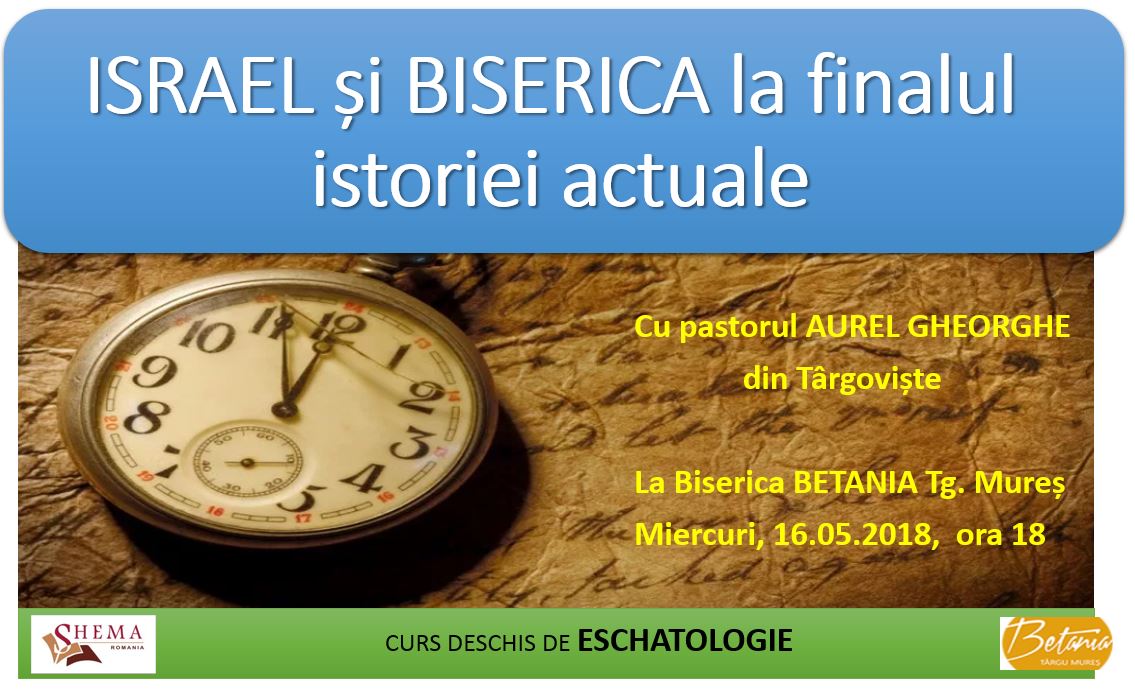


























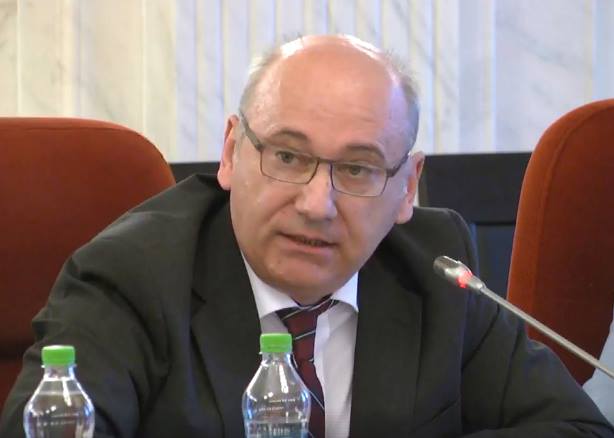





































































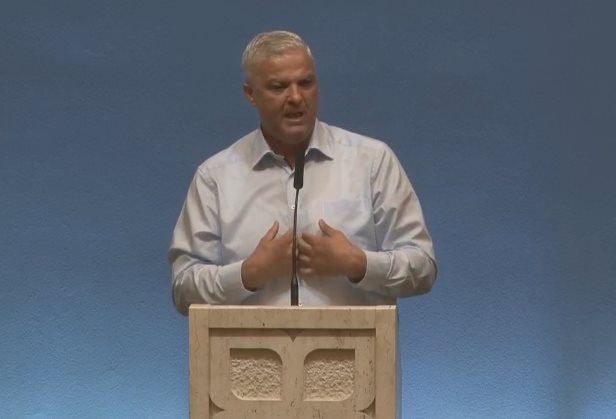
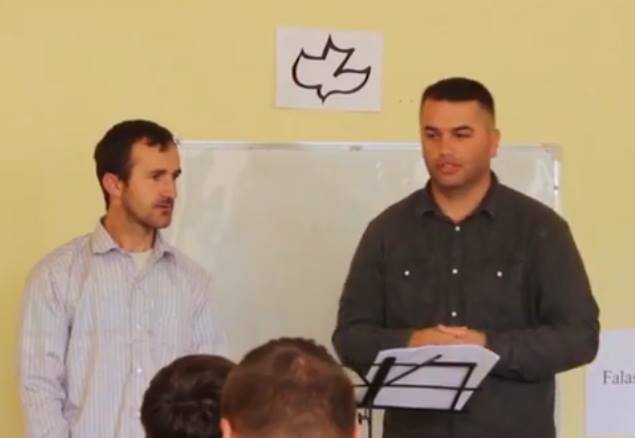







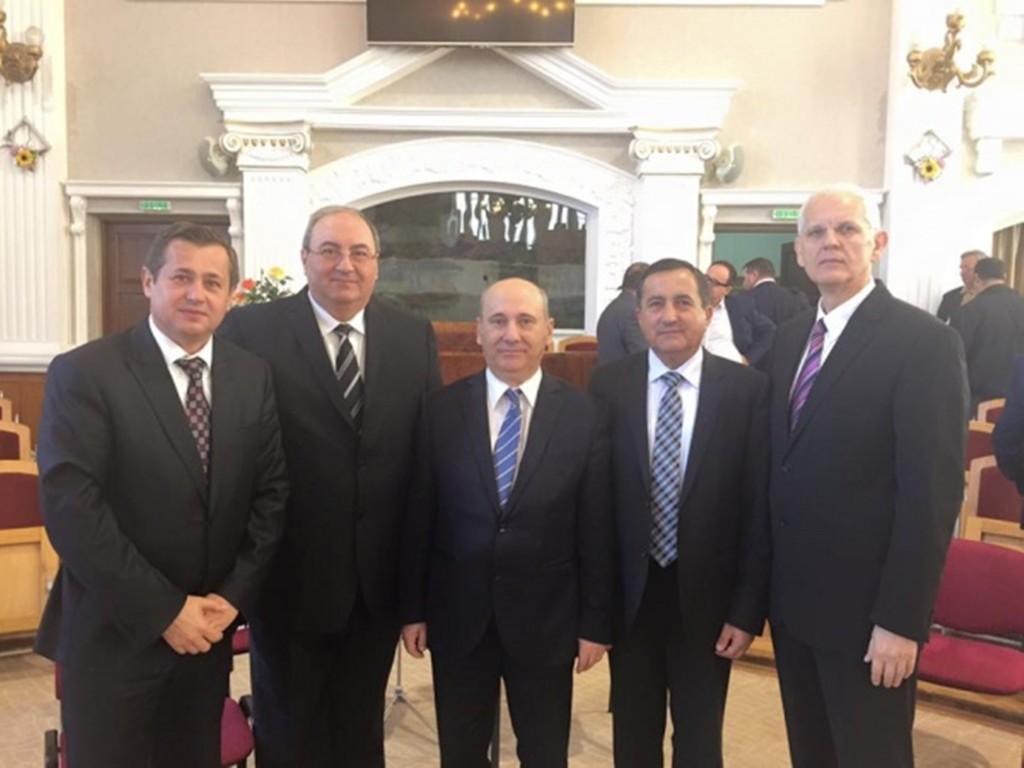








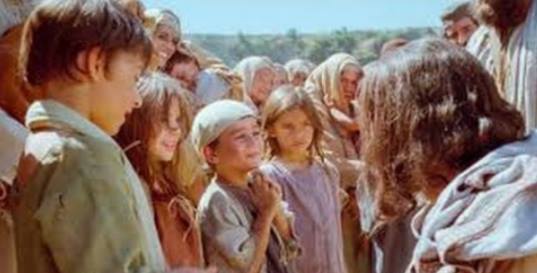












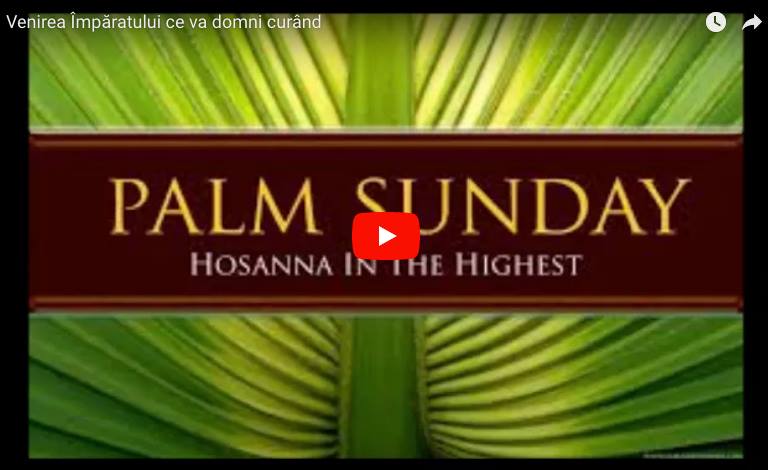
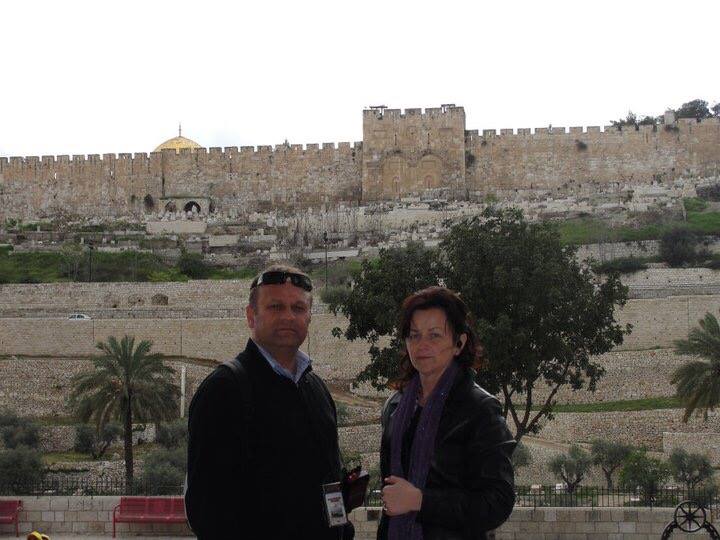















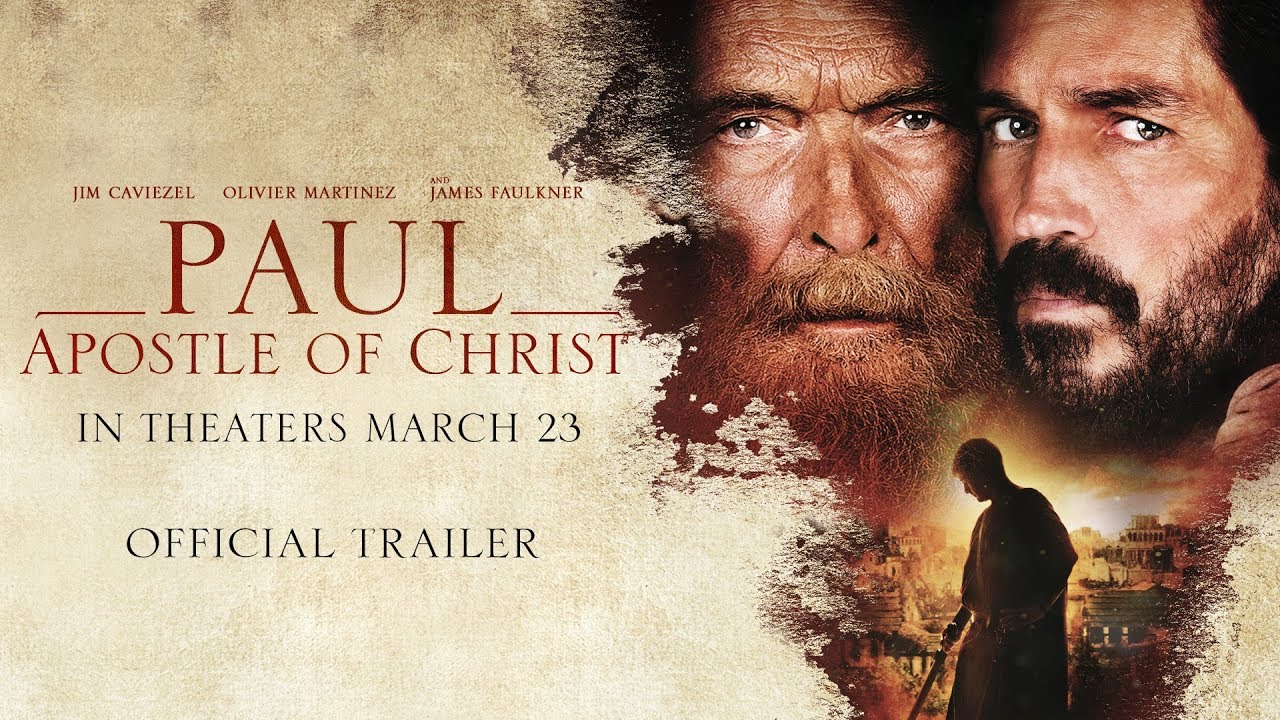















































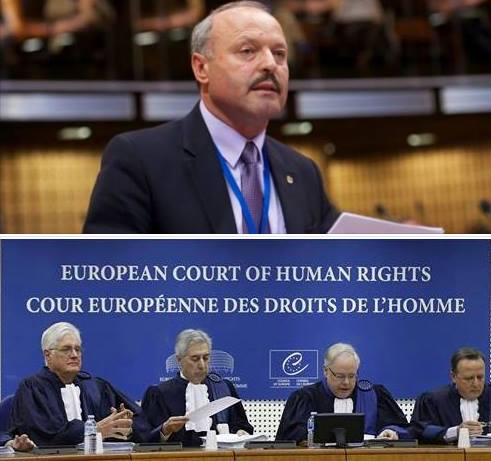







































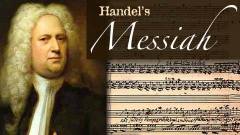







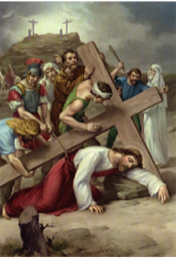
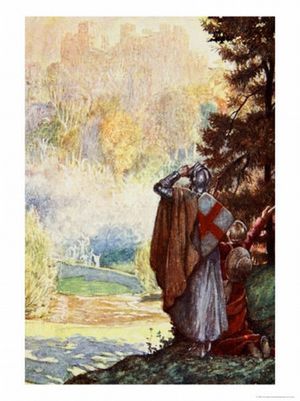



Dialogue on holiness with John Oswalt – author of Isaiah NIV Commentary
06 iul. 2013 Comentarii închise la Dialogue on holiness with John Oswalt – author of Isaiah NIV Commentary
by rodi in Holy Spirit, Word of God Etichete:A Biblical Perspective, Asbury Theological Seminary, Bible, Book of Isaiah, Brandeis University, Called to be Holy, Henry Center, holiness, John, John N. Oswalt, New Testament, NIV Isaiah Commentary, Old Testament
John Oswalt talks about holiness through it’s proper understanding of the Christian life and what it is all about, an example from the trinity vs. an overemphasis on externals (i.e. a holy outward life where we judge it by counting buttons or length of hair). His most recent book ‘Called to be Holy’,
Called to Be Holy by John N. Oswalt (Jun 15, 2011)
(Source – Amazon, Photo credit Amazon).
VIDEOS by TheHenryCenter located at Trinity Evangelical Divinity School of Wheaton College, Deerfield, Illinois (a suburb of Chicago). For more videos (many debates) click here – http://www.henrycenter.org
Dialogue with John Oswalt – Part 1 (36 min)
Dialogue with John Oswalt – Part 2 (21 min)